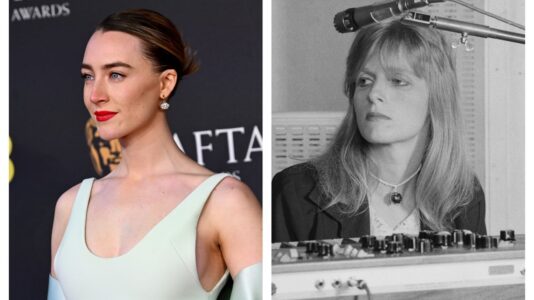Exploring Charlize Theron’s Role in Prometheus: A Deeper Look into the Alien Franchise
Charlize Theron, an Academy Award-winning actress, is widely recognized for her compelling performances in a range of genres. From her Oscar-winning role in Monster to her fierce portrayal of Furiosa in Mad Max: Fury Road, Theron has made a name for herself in Hollywood. In Ridley Scott’s Prometheus, she takes on the intriguing role of Meredith Vickers, a character that adds complexity to the Alien universe, diving into themes of ambition and moral ambiguity.
The Character of Meredith Vickers
In Prometheus, which premiered on June 8, 2012, Charlize Theron embodies Meredith Vickers, a corporate representative from the Weyland Corporation. Tasked with overseeing an ambitious expedition to uncover evidence of alien life, Vickers initially presents as a pragmatist, maintaining a cool demeanor amidst chaos. However, her actions demonstrate a chilling adherence to orders, particularly when she makes the grave decision to eliminate a crew member infected with alien matter.
The character’s relationship with her father, the powerful and opportunistic Peter Weyland, is central to her motivations. Weyland’s quest for immortality frames the expedition in a darker light, revealing that the crew’s exploration is merely a cover for Weyland’s personal ambitions. Vickers’ drive to win her father’s approval showcases her as a product of corporate greed, framing her as a not-so-innocent participant in the moral decay typical of the Alien series.
The Philosophical Undertones of Prometheus
Unlike earlier installments in the Alien franchise, which often hinge on the terror of alien life forms, Prometheus explores more profound existential questions. It is less about survival against a monstrous foe and more about the origins of life and the inherent violence in existence. This thematic shift invites viewers to contemplate the implications of creation, responsibility, and the consequences of corporate ambition—all through the lens of a science fiction narrative.
The film’s narrative structure invites scrutiny; while it features moments of intense horror, such as the infamous chestburster scene, its larger discourse aims to provoke thought rather than relying solely on traditional thriller tropes. This mission separates Prometheus from other entries in the franchise, which often prioritize straightforward survival horror.
A Villain Conundrum: Humans as the Real Monsters
One of the notable themes explored in Prometheus is the notion that the true villains in the Alien universe are not the xenomorphs, but rather the human characters driven by ambition and greed. This commentary reflects on corporate ethics and questions societal values that prioritize profit and power over humanity.
Though Theron’s Vickers may not possess the same level of malevolence as her father or other antagonists from previous films, she embodies the series’ recurring critique of human nature. “The villain in the canonical Alien stories is always, always, always people,” highlights the darker side of human ambition, making her role as both a protagonist and antagonist complex and multifaceted.
Current Availability
For those interested in revisiting this thought-provoking entry into the Alien universe, Prometheus is currently available for streaming on Hulu.
Conclusion: The Implications of Vickers’ Role and the Legacy of Prometheus
Charlize Theron’s portrayal of Meredith Vickers in Prometheus offers a rich exploration of the interplay between ambition, morality, and the human condition within the context of science fiction. As the film grapples with deeper philosophical questions, it challenges viewers to reconsider the nature of monstrosity—forcing them to look beyond the literal creatures lurking in the shadows.
In an era where the conversation around corporate responsibility is more pressing than ever, Prometheus remains a relevant cautionary tale about the dangers of unchecked ambition. Theron’s performance not only elevates the film but also contributes to the ongoing dialogue surrounding gender and authority in cinematic narratives—solidifying her as a key player in contemporary film.









